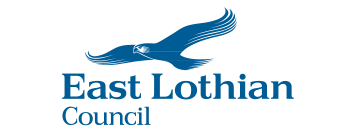Research, Development and Innovation
Over 15 years, the UK and Scottish Governments have committed £350 million to support the development of a number of initiatives in the research, development and innovation theme. Including partner contributions, this is worth a total of £791 million.
There are three elements in the Research, Development and Innovation programme:
Data-Driven Innovation (DDI) Initiative: (City of Edinburgh and Midlothian)
Food and Drink Innovation Campus: (East Lothian)
A Programme of Investment in Economic Infrastructure: (Fife and the Scottish Borders).
Data-driven innovation (DDI) INITIATIVE
From food production and climate change, to exploring Space and genetically-tailored healthcare, the Data-Driven Innovation (DDI) initiative is a cluster of innovation hubs at the University of Edinburgh and Heriot-Watt University that bring researchers and industry together to delve into some of the world’s most pressing challenges – using data to innovate.
Innovation starts with an idea. Turning an idea into reality needs partnership. So the DDI initiative is striving to help researchers collaborate with businesses, charities, and the public sector, at the crossroads of data science, research, and real-world challenges – where exciting innovations take place.
The DDI initiative is being delivered by two of the City Region’s world-leading universities, the University of Edinburgh and Heriot-Watt University, to support the creation of new partnerships that will make a positive difference in society.
Six data-driven innovation ‘hubs’ have been created, housing expertise and facilities to help 10 industrial sectors become more innovative through data. The University of Edinburgh hosts the Bayes Centre, Edinburgh Futures Institute, Easter Bush Agritech Hub, Edinburgh International Data Facility and the Usher Institute, while the National Robotarium is co-hosted by Heriot-Watt University and the University of Edinburgh.
Read the latest DDI Annual Review.
What is data-driven innovation?
The inclusion of Data-Driven Innovation in the City Region Deal reflects the growing importance of data in economic growth, social change, and public services. Through high-speed data analytics, our ability to capture flows of data and understand what they tell us is bringing better and faster capability to identify trends and behaviour across many sectors, leading to improved services for consumers and citizens.
Bayes Centre
Opened in October 2018, the Bayes Centre provides an innovative environment to support the co-location of up to 600 world-leading applied data science researchers, students, and collaborating staff from organisations across the public, private and third sectors. The Centre is also home to the Post-Covid AI Accelerator, the Data Science Technology and Innovation online PGT programme and coordinates the internationally acclaimed EIE programme.
Focussing on the facilitation of translational research and development, the Bayes Centre connects industry partners to academic and research expertise from across the institution, as well as organisations like the Alan Turing Institute and the Data Lab.
Total Investment: £45 million
Latest Position: The Bayes Centre Project Business Case [PDF 8MB] was approved by Joint Committee on 17 December 2018.
The Bayes Centre opened and has been delivering on key projects since October 2018.
Last updated: 23 January 2024
national robotarium
The National Robotarium is a world-leading centre in robotics and AI, based at Heriot-Watt University. It creates innovative solutions to global challenges, working directly with industry to research, test and develop robotic, AI and automated technologies that have a positive impact on the economy and society. The National Robotarium uses AI and robotics to help make us safer, healthier, and more productive. Through its globally significant work, the National Robotarium develops talent and shapes the future, having a positive impact on the economy and society
Total Investment: £22 million
Latest Position: The National Robotarium Project Business Case was approved by Joint Committee on 17 December 2018.
The Robotarium was opened in September 2022.
Last updated: 23 January 2024
edinburgh futures institute (EFI)
Edinburgh Futures Institute is creating a new environment for data-rich learning, teaching, research and innovation – and they are doing it side-by-side with communities, organisations, businesses and industry. Recognising that the biggest challenges facing societies globally are complex and interconnected, and that insight, innovation and impact come from bringing people and knowledge together across multiple disciplines, the Futures Institute collaborates to address complex challenges and make positive impact.
The Futures Institute is working with organisations and professionals, from sectors like fintech, creative industries, public services and tourism to tackle challenges, improve products and services, and develop new ones through better use and understanding of data. The Institute’s portfolio of new postgraduate study options includes core data skills, ensuring graduates learn data-led decision making, data innovation and collaboration, and the fundamentals of data ethics.
Total Investment: £189 million
Latest Position: The EFI Business Case was approved by Joint Committee on 1 March 2019.
Last updated: 23 January 2024
Usher Institute
Through the application of data science, the Usher Institute is driving innovation in health and social care that improves lives. First established in 1902, the Usher Institute is home to the oldest chair of public health in the UK and has a strong international reputation for research and teaching excellence.
Located at Edinburgh BioQuarter, the new Usher building will become a world-leading hub where health and social care research teams collaborate with colleagues from public, private and third sector organisations to deliver data-driven advances in health and social care.
This newly established innovation community will develop solutions to our most pressing sector challenges by integrating the activities of: clinicians, life scientists and data scientists to identify new, co-produced insights; and industry and public sector organisations to extract, apply and commercialise expert knowledge.
The Usher Institute is drawing on Scotland’s mature and world-leading health data assets, establishing ‘DataLoch’ - a unique and secure data service to support transformative research and innovation for the region and beyond. Robust, efficient governance and data-sharing protocols have been developed in partnership with the National Health Service, informed by public perspectives.
An ambitious Talent programme will provide a suite of education and training to support a future workforce with the knowledge and skills to drive the use of data and digital technologies to transform the delivery of care.
Total Investment: £85 million
Latest Position: The Usher Institute Business Case was approved by Joint Committee on 3 September 2019.
Last updated: 23 January 2024
easter bush agritech hub
An efficient agricultural sector is critical to social well-being; by 2050, global agricultural production will need to increase by 50% to feed a growing global population. By applying data technologies that enable farmers and related industries to improve food production, veterinary care, digital agriculture (Agritech) is critical to increasing global food supply.
The Easter Bush Agritech Hub seeks to leverage existing world-class research institutes and commercialisation facilities to help the City Region become a global location of Agritech and veterinary excellence. It does this through a campus-wide network that generates and collates, in real time, a multitude of local and global data, (e.g. veterinary activities, animal genetics, food species genetics, soil condition, weather and market drivers). It also collaborates with partners to use this information to realise the potential of having the right food species, and the right products, in the right field at the right time, to maximise agricultural productivity.
Total Investment: £43 million
Latest Position: The Easter Bush Project Business Case [PDF 3.37MB] was approved by Joint Committee on 5 March 2021.
Last updated: 23 January 2024
Edinburgh International Data Facility (EIDF)
The Edinburgh International Data Facility (EIDF) provides the enabling data infrastructure platform for the wider DDI initiative and its hubs. The DDI activities require an extremely powerful, high capacity and flexible infrastructure, capable of responsive delivery of an expanding range of complex and bespoke data and analytical services.
By leveraging prior investments in the Edinburgh Parallel Computing Centre (EPCC), and its Advanced Computing Facility (ACF), the EIDF represents a practical, flexible and cost-effective approach to the delivery of diverse technological requirements.
Total Investment: £190 million
Latest Position: The EIDF Project Business Case was approved by the Joint Committee on 17 December 2018.
Last updated: 23 January 2024
Edinburgh innovation hub
The Edinburgh Innovation Hub is a £40m flagship development by East Lothian Council and Queen Margaret University (QMU), The development of the Hub will create a nationally significant facility to capture, support and grow innovation-led enterprise in East Lothian and the Edinburgh region. The Hub will be a best in class innovation facility developed as the first phase of Edinburgh Innovation Park, a new and unique development for innovation-led enterprise adjacent to QMU.
The Hub will provide serviced and fitted commercial laboratory and office space for high growth tech and innovation-based businesses. The Hub will become a vibrant innovation cluster where high growth SMEs and innovation-led businesses co-locates with research and business networks under one roof to deliver a specialist service offering for commercial innovation.
The Hub will be a regional and national resource that will enable cross-sector collaborations and interactions at all levels. Businesses will benefit from a network of business support and people and businesses will be brought together to share knowledge and skills at the ‘crossing point’ between R&D and commercialisation.
Companies locating to the Hub will benefit from facilitated access to the University, its social and intellectual capital and to its business support services. Co-location will encourage mentoring and peer support. Close access to business development staff and business support intermediaries will enhance the support on offer, facilitating connections with investors and enabling business collaboration.
Total Investment: £40 million
Latest Position: The Edinburgh Innovation Park [PDF 6.70MB] business case was approved by Joint Committee on 4 June 2021.
Construction is anticipated to commence in January 2024
Last updated: 23 January 2024
A Programme of Investment in Economic Infrastructure
This programme, worth £74 million will initally focus on creating innovation space in Fife and the Scottish Borders to ensure that businesses and communities across the city region are fully able to engage in the data-driven innovation opportunities, including industrial and business premises, to ensure maximum impact from the innovation investment.
Working closely with the region’s universities, the local authorities and their local business forum/economy partnership will also develop new approaches to stimulating innovation activity.
This will be achieved through a range of innovation activities with a focus on digital technologies and data and the circular, low carbon economy. The ambition is to have more innovation-active businesses in Fife and Scottish Borders
Dunnikier Business Units, Kirkcaldy
FIFE INDUSTRIAL ESTATES REGENERATION
The Fife Industrial Innovation Investment Programme is a £58m ten-year programme delivered by Fife Council as part of the Edinburgh and South East Scotland City Region Deal.
The investment programme will provide buildings of the future and a major economic boost that will enable more joint working between the region’s universities and Fife businesses to drive productivity and deliver higher value, skilled permanent jobs. It will support the growth of innovative businesses in Fife and help improve the region’s economy for everyone.
The new industrial and commercial stock will ensure that Fife’s technology parks and industrial estates have cutting-edge digital capability, flexible space for innovative manufacturing industries that are energy compliant.
Over the next three years new office and industrial premises built / refurbished across four sites in Levenmouth, Kirkcaldy, Cowdenbeath and Glenrothes will be developed. Five hectares of new serviced employment land in Dunfermline and Lochgelly will be available for immediate investment by new or existing businesses.
Over the last six years new office and industrial premises have been built in Levenmouth, Dunfermline, Kirkcaldy and Glenrothes. Over 6 hectares employment land is now available for immediate investment by new or existing businesses.
The Fife Industrial Estates Regeneration will:
Sustain the region’s reputation as a world-leading, data-driven centre for innovation.
Provide important investment in progressive industrial modernisation that will encourage more businesses to locate and grow within Fife.
Support the creation of 800 new skilled permanent jobs, with almost 600 short-term construction jobs.
Draw in a diverse range of companies with a growth outlook.
Attract a further £30m of further investment by the private sector.
Contribute to a regional step-change in economic performance by balancing growth across the region – targeting both areas where much-needed investment will create new jobs for local people as well as ‘economic hotspots’ that already have rapid economic development.
Total Investment: £58 million
Latest Position: The Fife Industrial Estates Regeneration Programme was approved Joint Committee on 1 March 2019. The project is being delivered in 3 tranches and the first Tranche was completed in March 2022 with Tranche 2 underway. The Tranche 3 Business Case was approved in 2014, commencing in April 2025.
New business accommodation in Glenrothes, Kirkcaldy, Levenmouth and Dalgety Bay is completed, available vacancies are posted on Business Units | InvestFife.
Site servicing has taken place at Fife Interchange North, Dunfermline and construction is now underway for new industrial units with completion estimated in Spring 2025.
Find out more on the InvestFife website.
Last updated: 23rd January 2025
Borders Innovation Park
The Borders Innovation Park, situated next to the Borders Railway terminus at Tweedbank, will deliver much-needed high quality business space to the Scottish Borders.
Costing £29 million, the project will be completed in three phases. It will stimulate business growth and associated job creation, enhancing the area’s inward investment offer, particularly to high-value sectors, as well as assisting existing businesses to improve their competitiveness. It will also help to address inequalities in the area through providing access to better quality, higher paid jobs.
Total Investment: £29 million, including £15 million from the City Region Deal.
Latest Position: The Central Borders Innovation Park project was approved by Joint Committee on 1 March 2019 and the construction of the first buildings began in July 2020. The first building in Phase 1 opened in July 2022 and is now fully occupied. A proposal for a change control to the Full Business Case for Phase 2 will go to the Joint Committee in June 2025. Phase 2 will consist of an extension to the Phase 1 building that is due to be completed by June 2026 and will be able to accommodate up to four businesses. Phase 3, for which road and service infrastructure have already been approved, will be the subject of a revised Full Business Case later in 2025.
Last updated: 28 January 2025


















